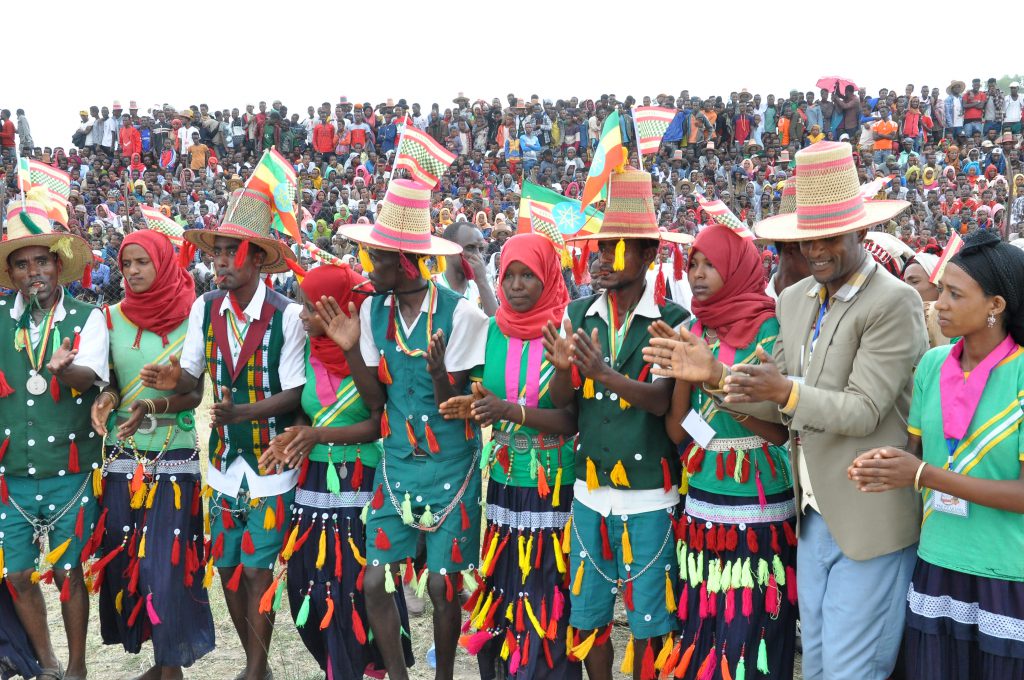
Halaba People has its own traditional administrative system known as “Sera” which means law, principle, rule and regulation and in the community all cultural issues and living conditions are guided by this system.
To promote this tradition, the people colorfully celebrate ‘Sera’ holiday every year in the month of January after farmers accomplished crop harvest.
As information obtained from Halaba Zone Culture and Tourism Bureau, the holiday is an occasion in which the community demonstrates its unity, solidarity and integrity in an organized manner.
The source indicated that the system has been serving as an instrument to strength social bonds among the people through providing fair justice system mentioning that the conflicted groups and individuals undertake ritual promises when conflicts arise; when problems are solved via this system, they do agree and trust one another than that of modern legal system.
Even if a person commits hidden crime and if the case is submitted to Halaba Sera Jurors for settlement, he/she tells them the reality without reluctance. Hence, in that way they save time, money and energy in search of justice for injured person and reduce false accusations, too.
As to the source, recently the local and foreign tourists have been flowing to the zone and apart from participating in festivals, tourists who travel to the area visit a lot of attractive areas like Arto Water Spring, Goljo Mountain, Sifacha hole, Asore Natural forest, Shala lake and Kulito mosque.
Sultan Hussein, Head of the zonal Culture and Tourism office said that though the system had been practiced before a century, practicing it was neglected for a decade due to lack of concern and paying attention to the system. But, as of 2003, the commencement to host different language and cultural symposium has led the system to revive. Hence, since recently, the tradition has been celebrated at kebele, Zonal, and state levels proclaiming the celebration of the day as the ‘Halaba people’s new-year.’ The system has its own administrative structures along with duties and responsibilities with which administrators at each level provided.
Accordingly, the system has its own a general assembly called HalabiOgete or Ogete and the head of the general council is called “Wama” which means king.
The first level is BokiOgete (Yebeteseb Shengo), and it oversees issues of all members of the family up to four or five generations.
The second level is called Mini Ogete (Yebetezemed Shengo), which solves conflicts in all members of the family up to seven or eight generations.
DeboOgete (Yegosa Shengo) is the middle administrative level in the Halaba traditional conflict resolution system and it has a duty to solve the conflict between sub-tribes within one tribe. HalabiOgete (Ye Halaba Shengo), is the final rank of power, it has a power to solve conflict that occurs between and among all people belong to Halaba nation.
As to him, apart from serving as judicial system, the system also encourages the community to help the needy and destitute people.
The Ethiopian Herald May 17, 2020
BY TAMERU REGASA
